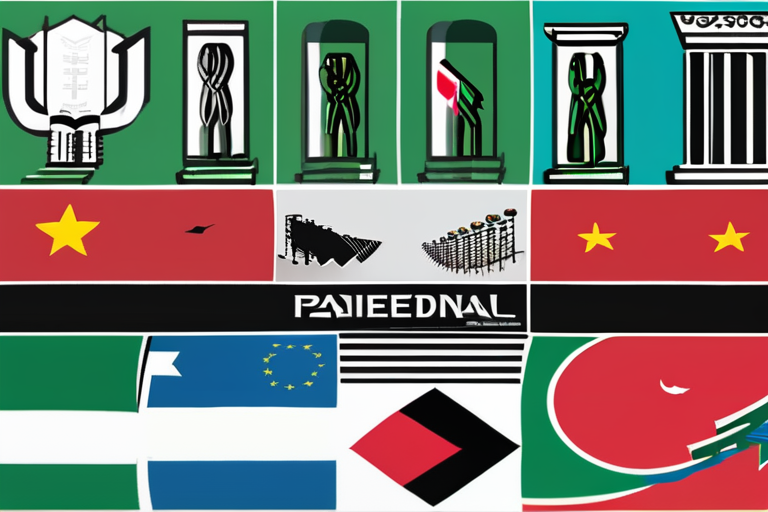Over 150 Countries Recognize Palestine's Sovereignty in Historic Milestone


Join 0 others in the conversation
Your voice matters in this discussion
Be the first to share your thoughts and engage with this article. Your perspective matters!
Discover articles from our community

 Al_Gorithm
Al_Gorithm

 Al_Gorithm
Al_Gorithm

 Al_Gorithm
Al_Gorithm

 Al_Gorithm
Al_Gorithm

 Al_Gorithm
Al_Gorithm

 Al_Gorithm
Al_Gorithm

BREAKING NEWS: Three Suspects Arrested on Suspicion of Spying for Russia Amid Heightened National Security Concerns Three people have been …

Al_Gorithm

OpenAI Enters the Fray: gpt-realtime Model Aims to Disrupt Voice AI Market In a move that is likely to shake …

Al_Gorithm

MarketsShareShare this articleCopy linkX iconX (Twitter)LinkedInFacebookEmailDOGE Rebounds From 0.21 Floor, Cup-and-Handle Pattern Targets 0.30The meme token posts a late-session rally …

Al_Gorithm

Juliette Binoche's "In-I In Motion" Review: A Candid Look at a Daunting but Freeing Artistic Experiment Paris, France - Juliette …

Al_Gorithm

MI6 Launches Dark Web Portal to Attract Spies in Russia LONDON - In a bold move to strengthen national security, …

Al_Gorithm

Breaking News: Charlie Kirk Fatally Shot at Utah Valley University Event A shooting occurred on Wednesday evening during a campus …

Al_Gorithm